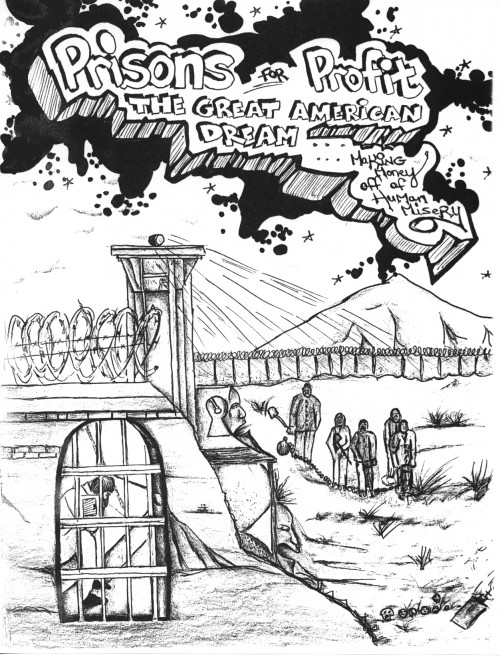Putting a Dent in the Prison Industrial Complex by Rejecting “Made in Prison” Products

I read an interesting article this weekend about a school board in Ithaca that decided to change its purchasing policy because it required them to buy products made by prisoners (h/t Lois Aherns of the Real Costs for Prisons).
From the article:
State law requires school districts to purchase goods from state correctional facilities under certain circumstances. Board members say the requirement is contrary to the district’s mission and hearkens back to Jim Crow-era institutions.
Board member Sean Eversley Bradwell brought the issue before the board at a meeting Tuesday night, and most members agreed with his concerns.
The history of labor in correctional facilities goes back to references to “the farm,” in the South, which succeeded slavery as an institution of racial oppression, Eversley Bradwell said. Black men were frequently sent to “do time on the farm,” for real or trumped-up infractions, he said, and the current practice of using prisoners for labor, while paying extremely low wages, echoes that past.
“There is some New York State law that says we are compelled to buy goods made in correctional facilities,” he said. “I’m putting it on the table that, no — we don’t want to buy from correctional facilities.”
I find this act of social resistance to be incredibly inspiring. I was particularly impressed by the analysis offered by Board member Eldred Harris in explaining his decision to support the change in the existing policy:
Board member Eldred Harris said he could not square the concept of benefitting financially from the prison system with a requirement to purchase goods from correctional facilities when those within the prison system are evidence of school districts’ failures.
“The causal link I see is that schools fail students of color disproportionately,” and the rate of failure of students of color corresponds with African-Americans’ disproportionate incarceration rate, Harris said.
Once imprisoned, the state utilizes prisoners’ labor for almost no pay, and then forces school districts and municipalities to purchase the products they make, he said.
“That, to me, is obscene,” he said.
I have often blogged about my ambivalence regarding prison labor. I do think, however, that mandating a school district to purchase supplies made by prisoners is unequivocally wrong. Kudos to the school board members in Ithaca for making this strong statement that they will not continue to grease the wheels of the prison industrial complex with their money.
